Ever wonder why your phone's buzzing with more than just your friends' messages? WhatsApp's campaign is a clever marketing strategy that's taking the business world by storm, and for good reason.
From quirky WhatsApp advertising campaigns to sophisticated WhatsApp chatbots, businesses are getting creative in how they slide into our DMs (with permission, of course!).
A recent study found that WhatsApp marketing campaigns boast an average open rate of 98%, blowing email's 20% out of the water (Campaign Monitor, 2022). Talk about getting your message across!
But what exactly is a WhatsApp campaign, and how are brands nailing it?
Whether it's a flash sale announcement or a chatbot for WhatsApp answering customer queries 24/7, these campaigns are reshaping how we interact with businesses.
Buckle up as we explore the world of WhatsApp ad campaigns and some real-world examples that will make you say, “Why didn't I think of that?”
What is a WhatsApp Campaign?
A WhatsApp campaign is a tool that businesses use to communicate with customers directly through the popular messaging app, WhatsApp.
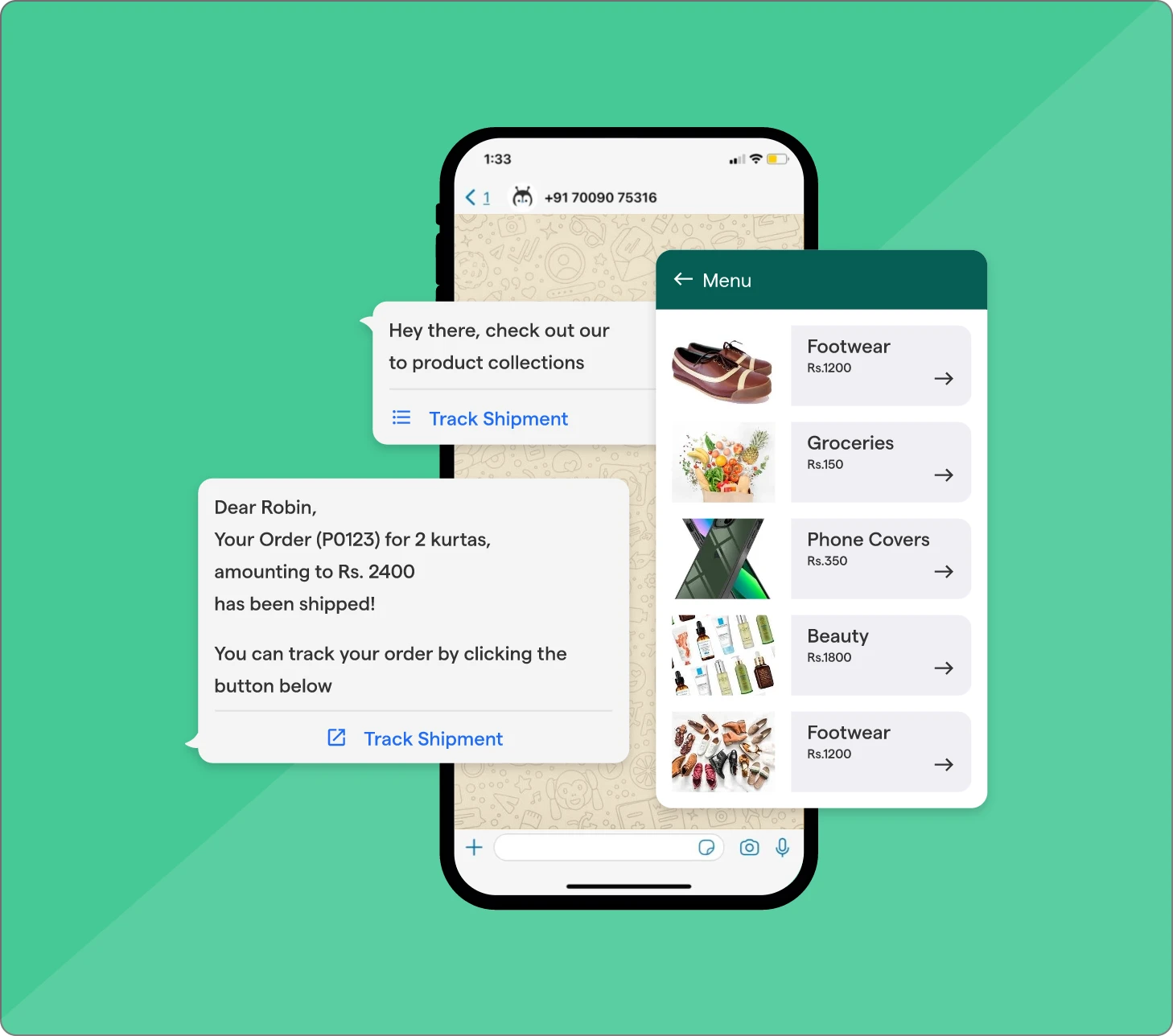
WhatsApp campaign is like having a digital bulletin board where companies can share updates, promotions, customer support, and other information with their audience. Instead of relying on email or social media, businesses can connect with customers right on their phones using WhatsApp.
With a WhatsApp campaign, businesses can send messages, images, videos, and links to customers who have opted to receive updates.
WhatsApp campaign is a personalized way to reach out to your audience and engage with them in real-time. Just imagine receiving special offers or updates from your favorite brands right in your chat app – that's the power of a WhatsApp campaign.
Businesses use WhatsApp campaigns to stay connected with customers, promote products and services, provide customer support, gather feedback, and build relationships.
It's a direct and convenient way to keep your audience engaged and informed. Plus, with the rise of mobile usage, WhatsApp campaign has become an essential part of a company's marketing strategy.
Benefits of WhatsApp Campaign
Given below are some of the benefits of WhatsApp campaign:
High Engagement
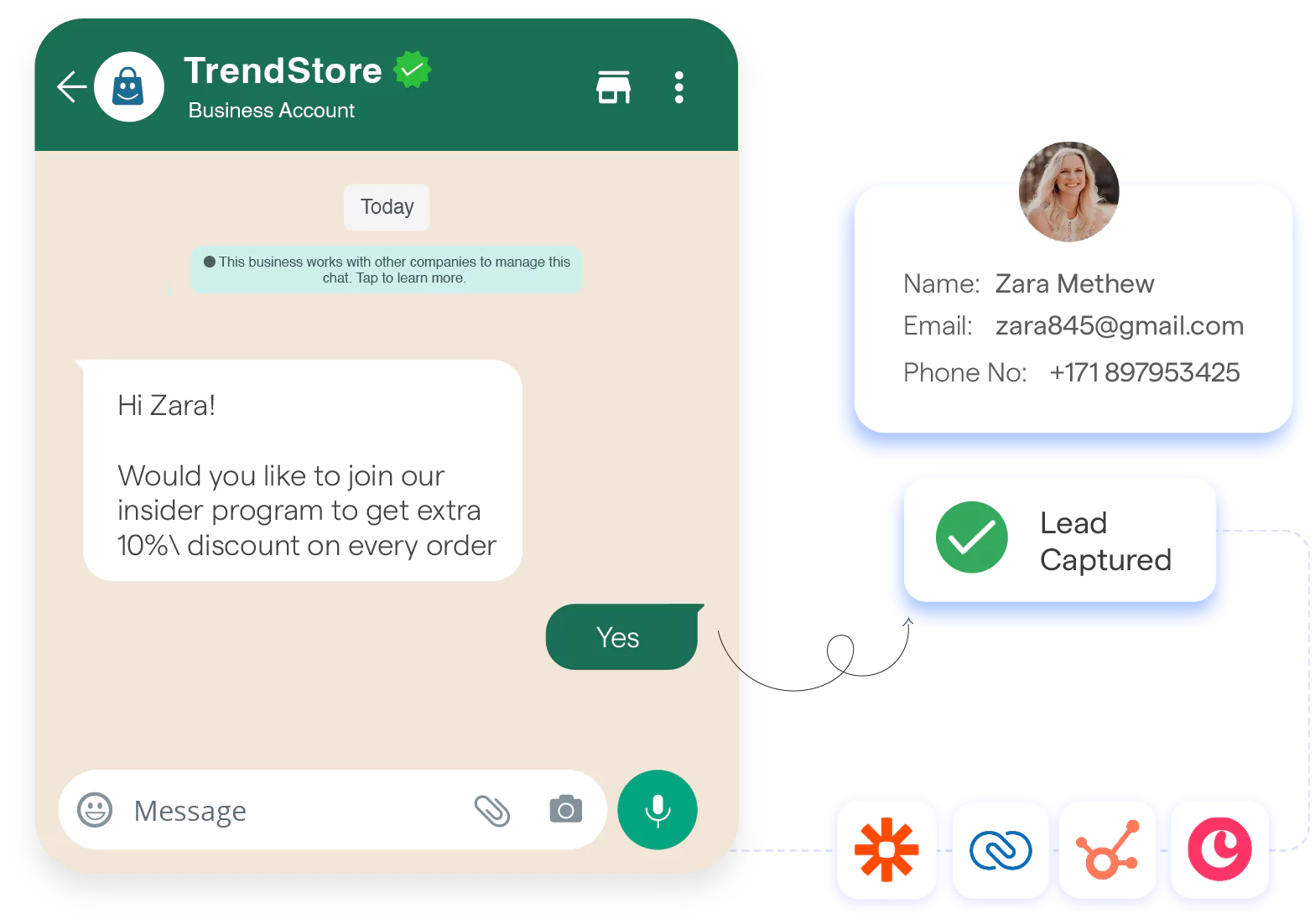
Customers are more likely to engage with messages received on WhatsApp as compared to other platforms. WhatsApp messages have a higher open rate and response rate, making it an effective channel for businesses to communicate with their audience.
This high level of engagement leads to increased brand awareness and customer participation. Whatsapp response time is two minutes and message open rate is 98%.
Instant Communication
WhatsApp campaign allows businesses to reach their customers instantly, ensuring that important messages or offers are delivered promptly.
This real-time communication helps in keeping customers engaged and connected to the brand.
Personalized Interaction
Through WhatsApp campaign, businesses can connect with their customers on a personal level by sending customized messages based on their preferences and behavior.
This personalized interaction helps in building stronger relationships with customers and enhancing brand loyalty.
Cost-Effective
Compared to traditional advertising methods, WhatsApp campaign is cost-effective.
Businesses can save money on printing materials, distribution costs, and other expenses associated with traditional marketing campaigns. This makes WhatsApp campaigns a budget-friendly option for businesses of all sizes.
Data Analytics
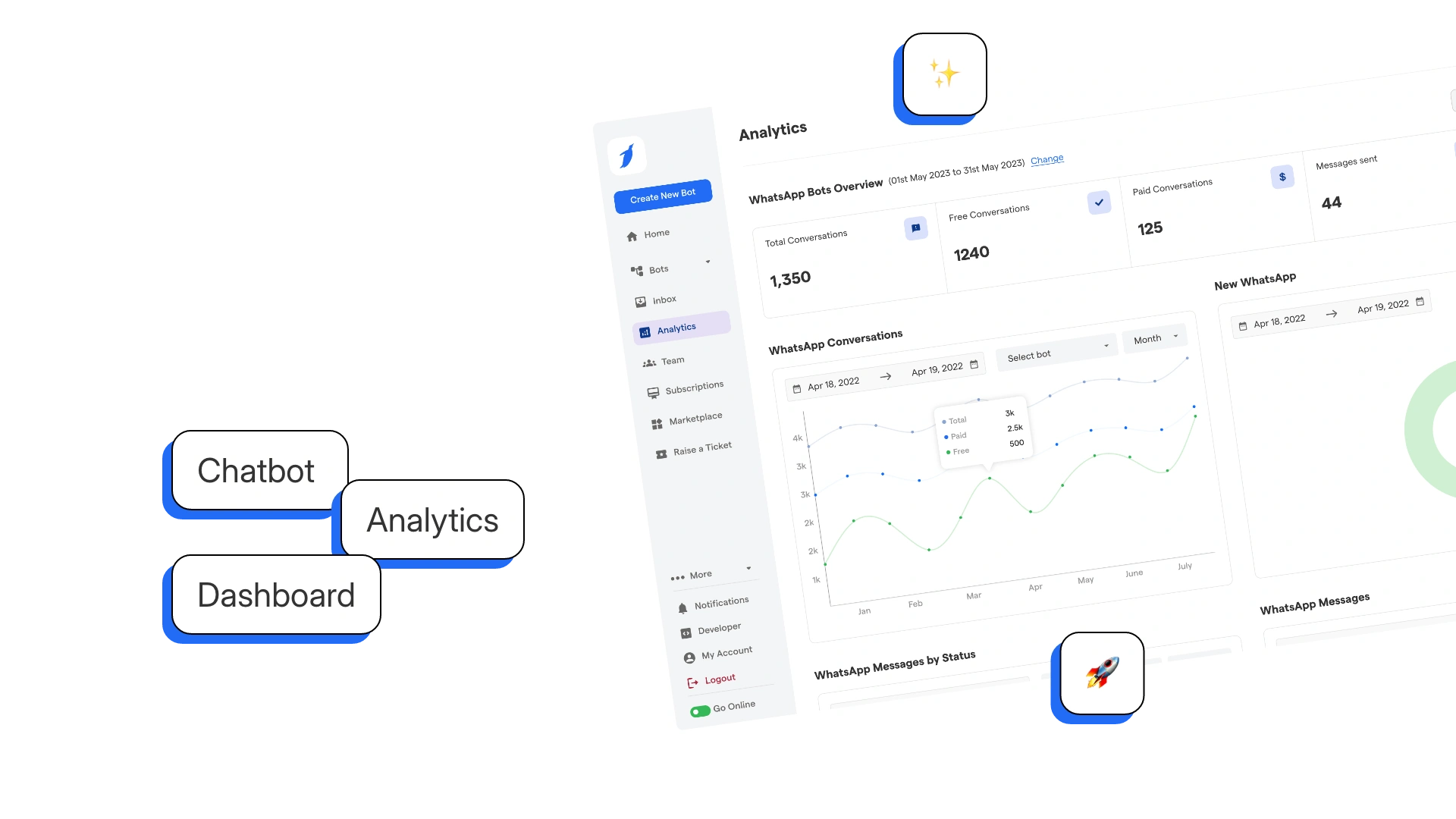
WhatsApp campaign provides businesses with valuable data and insights that can be used to measure the success of their campaigns.
By tracking metrics such as open rates and response rates, businesses can evaluate the performance of their campaigns and make data-driven decisions to optimize their marketing strategies.
Global Reach
With over 2 billion users worldwide, WhatsApp provides businesses with a platform to reach a global audience.
This global reach enables businesses to connect with customers from different geographic locations, expanding their market reach and increasing brand visibility on a global scale.
Customer Satisfaction
By using WhatsApp campaign for customer support, businesses can enhance the overall customer experience.
Customers appreciate the convenience of reaching out to businesses via WhatsApp for queries, feedback, or issue resolution, leading to improved customer satisfaction and retention rates.
Types of WhatsApp Campaigns
When it comes to WhatsApp campaign, there are several types that businesses can use to connect with their audience effectively. let's dive into the different categories of WhatsApp campaign:
Promotional Campaigns
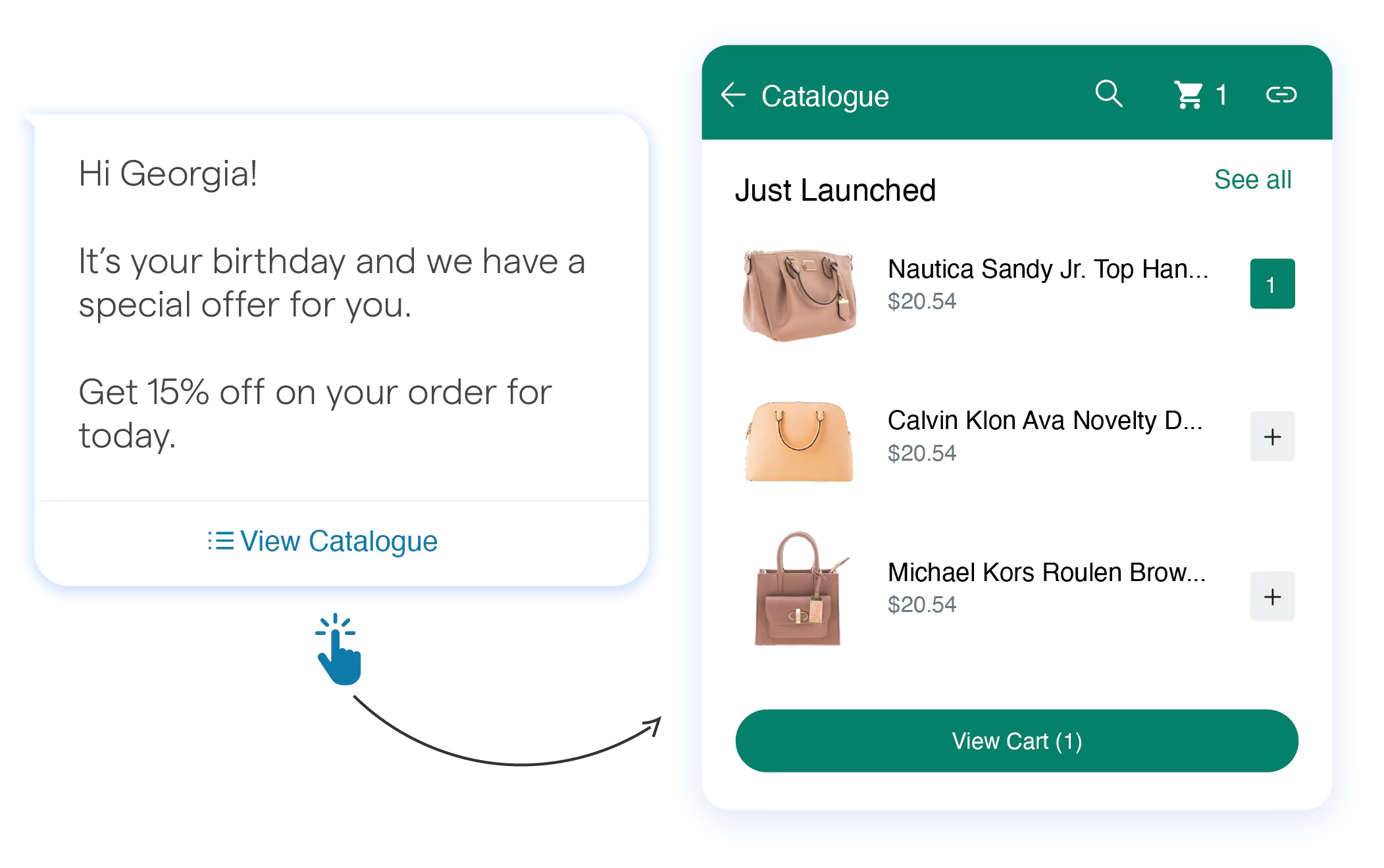
Promotional campaigns are all about boosting sales and creating awareness for your products or services.
By offering discounts, promotions, or showcasing new products, businesses can entice customers to make a purchase through WhatsApp messages.
The WhatsApp campaign can drive traffic to your website or physical store and increase revenue.
Customer Support Campaigns
Customer support campaigns are essential for providing prompt assistance to customers. By resolving queries, addressing issues, or handling complaints through WhatsApp, businesses can enhance customer satisfaction and loyalty.
Quick and efficient support builds trust and shows customers that their concerns are taken seriously.
Engagement and Retention Campaigns
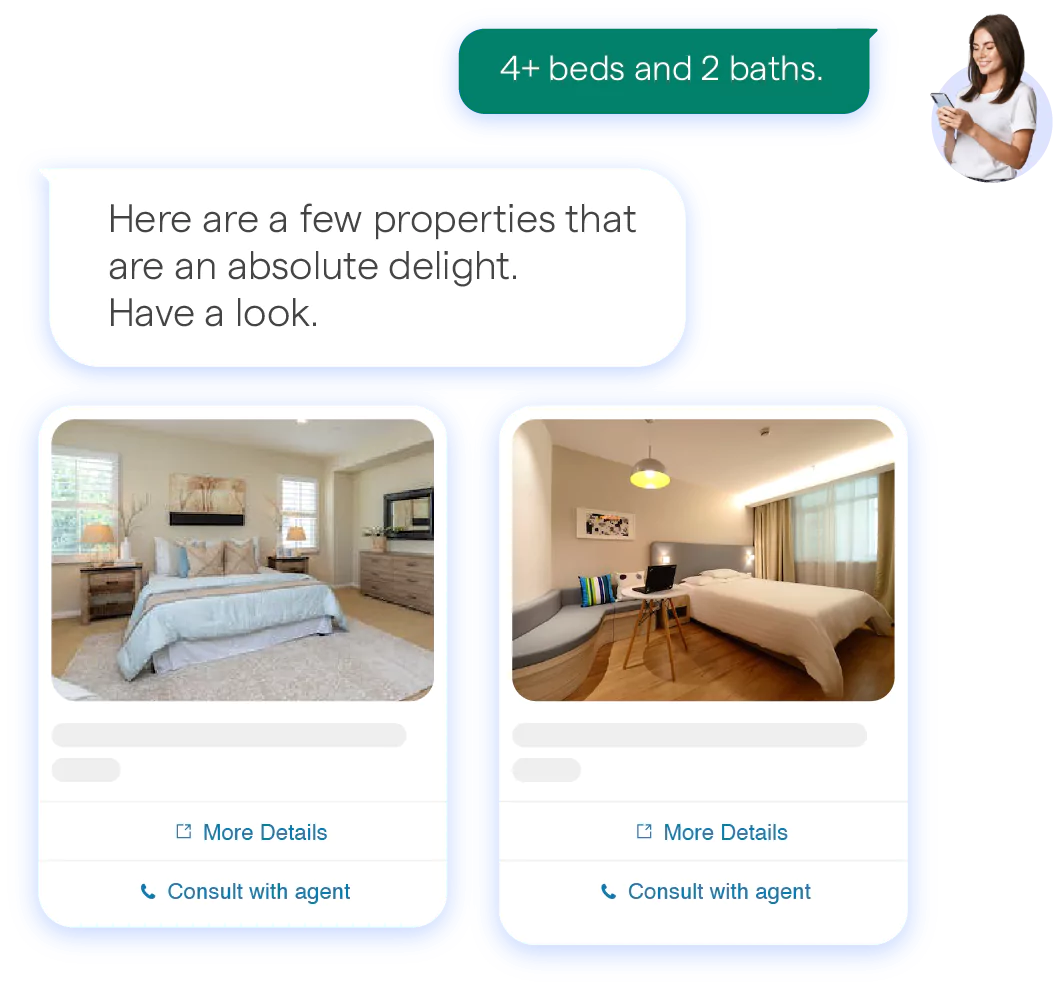
Engagement and retention campaigns focus on keeping customers interested and loyal to your brand.
These campaigns involve interactive content, special offers, or personalized messages to maintain a strong connection with customers.
By engaging with your audience regularly, businesses can build long-lasting relationships and encourage repeat purchases.
Informational Campaigns
Informational campaigns are aimed at educating customers about products, services, or industry updates.
By sharing valuable information through WhatsApp, businesses can showcase their expertise and build credibility with their audience.
The WhatsApp campaign helps customers make informed decisions and stay up-to-date with relevant news in their industry.
Feedback and Survey Campaigns
Feedback and survey campaigns are crucial for gathering insights from customers to improve products, services, or overall customer experience.
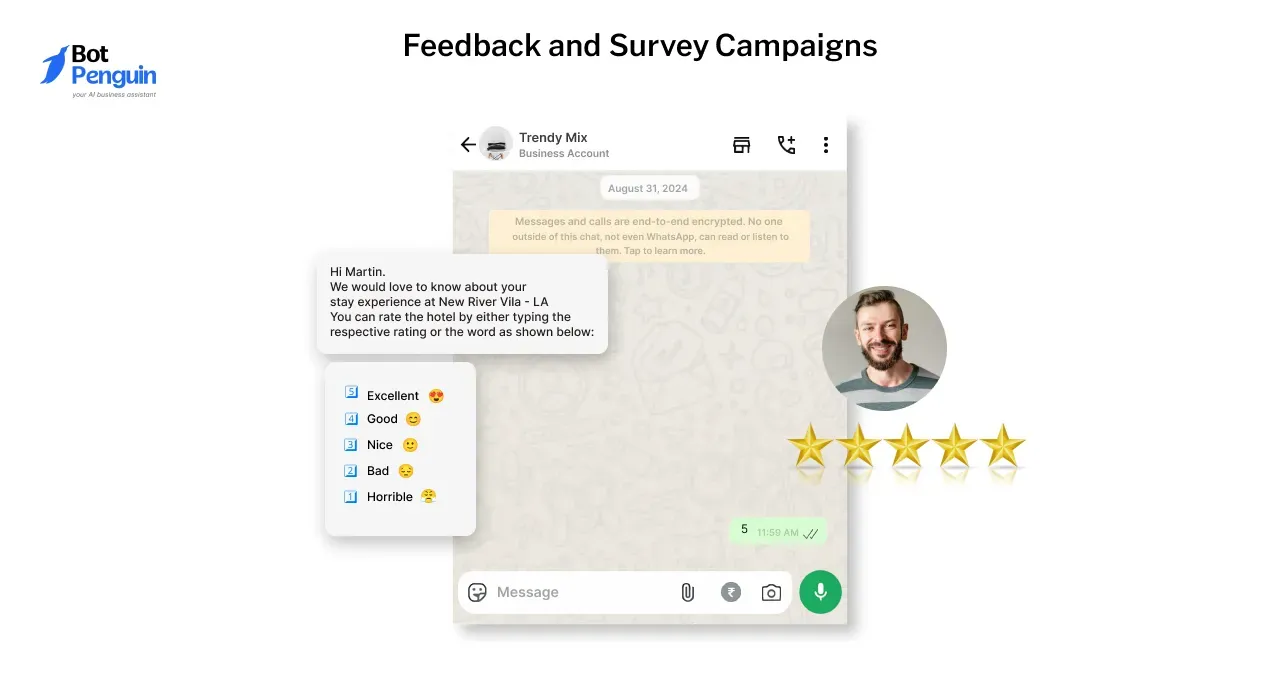
By collecting feedback through WhatsApp messages, businesses can understand customer preferences, identify areas for improvement, and enhance customer satisfaction.
Surveys can help businesses make data-driven decisions and tailor their offerings to meet customer needs effectively.
Setting Up a WhatsApp Campaign
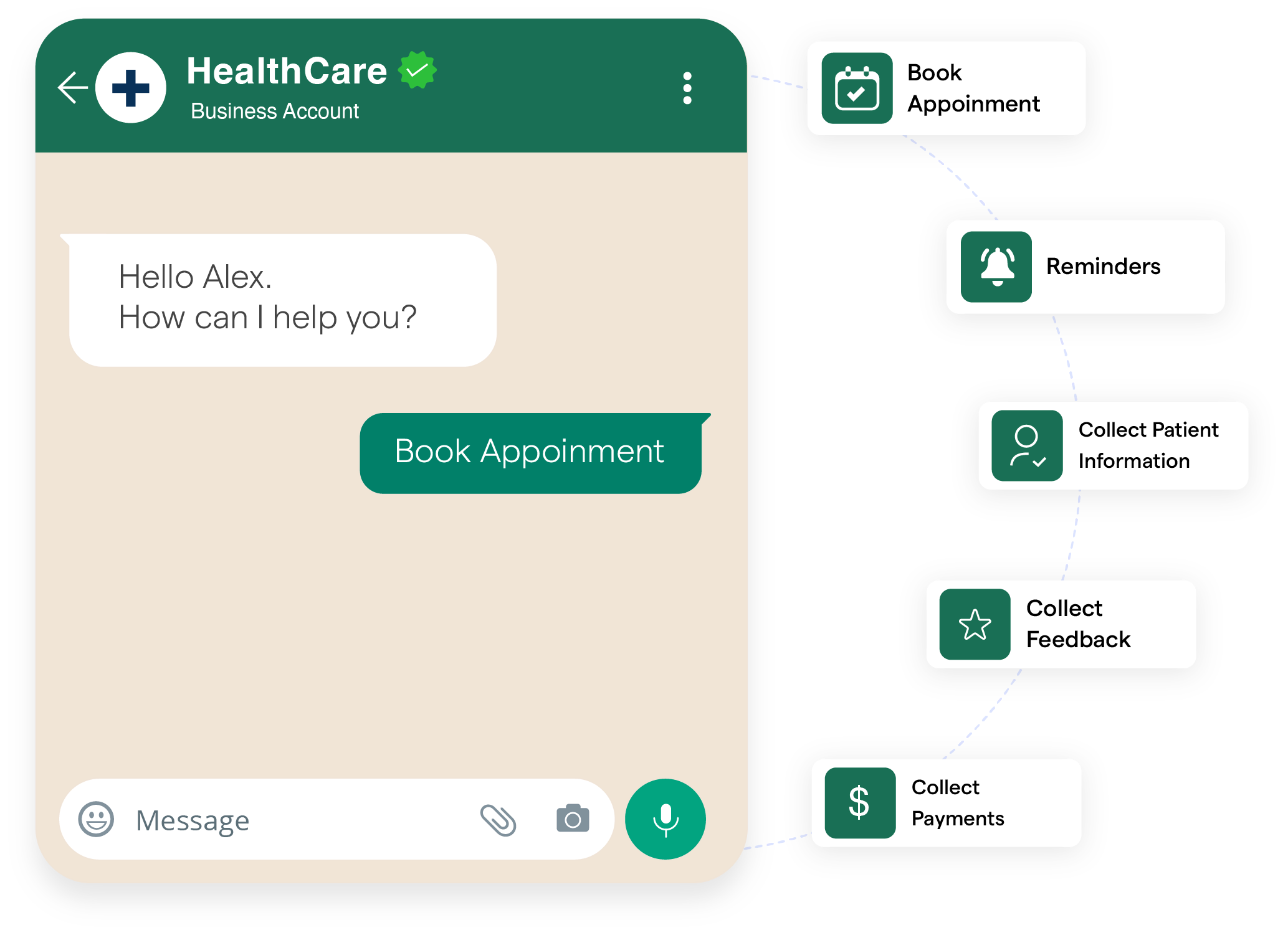
Transform your customer engagement strategy with WhatsApp campaigns that deliver personalized messages to over 2 billion active users worldwide, achieving up to 98% open rates and 45% click-through rates that traditional marketing channels simply can't match.
From automated welcome sequences to targeted promotional broadcasts, WhatsApp campaigns offer unparalleled reach and engagement, allowing businesses to connect with customers instantly through rich media content, interactive buttons, and automated responses that drive meaningful conversations and conversions.
Let's look to step for the the WhatsApp Campaign:
- Register Your Business: First things first, you need to create a business account on WhatsApp. This is your digital storefront for interacting with customers.
- Verify Your Business: Once registered, you'll need to verify your business account. This adds credibility and authenticity to your profile.
- Set Up Your Profile: Add your business logo, description, and contact information. Make sure it's easy for customers to recognize and reach out to you.
- Collect Phone Numbers: Ask your customers for permission to message them on WhatsApp. You can do this through your website, social media, or in-store.
- Organize Your Contacts: Keep your contact list organized and segmented based on customer preferences and interests.
- Stay Compliant: Ensure you're following data protection regulations and only messaging those who have opted in to receive messages from your business.
- Be Clear and Concise: Keep your messages short and to the point. Customers appreciate direct communication.
- Personalize Your Messages: Use customer names and tailor your messages to their preferences. This shows that you value their individuality.
- Include a Call to Action: Whether it's a link to a promotion or a request for feedback, always include a clear call to action in your messages.
Measuring Success

When it comes to measuring the success of your WhatsApp campaigns, there are key metrics you should track to understand how well your efforts are performing.
By monitoring these metrics, you can gauge the effectiveness of your messaging, engagement levels, and overall campaign impact.
Here are the essential metrics to keep an eye on:
Open Rates
Open rates indicate how many recipients have actually opened and viewed your WhatsApp messages. This metric can give you insights into the reach and visibility of your campaigns.
By tracking open rates, you can understand the effectiveness of your messaging and the level of interest your audience has in your content.
Response Rates
Response rates measure the number of recipients who actively engage with your WhatsApp messages by responding to them.
This metric helps you assess the level of interaction and engagement your campaigns are generating.
By analyzing response rates, you can evaluate the relevance of your messages and the extent to which your audience is willing to participate in conversations.
Conversion Rates
Conversion rates reflect the percentage of recipients who have completed a desired action after receiving your WhatsApp messages. This action could be making a purchase, signing up for a webinar, or subscribing to a newsletter.
By tracking conversion rates, you can measure the impact of your campaigns on driving valuable outcomes and achieving your business goals.
Suggested Reading:
WhatsApp Campaigns vs Email: Which Channel has a Better ROI?
Tools for Analytics and Reporting
To effectively track and analyze the performance of your WhatsApp campaigns, you can leverage various tools for analytics and reporting. Here are some recommended tools to consider:
- WhatsApp Business API: WhatsApp's official API offers insights into message delivery, response rates, and user engagement.
- Google Analytics: Integrate Google Analytics with your WhatsApp campaign links to track website traffic, conversions, and user behavior.
- Third-Party Analytics Platforms: Explore third-party analytics platforms that measure messaging metrics, campaign performance, and audience segmentation.
Real-World Examples of WhatsApp Campaigns
Brands are finding innovative ways to connect with their audience, and WhatsApp has emerged as a powerful platform for engaging customers.
Let's dive into various successful WhatsApp campaigns by well-known brands and explore their impact on user engagement and customer satisfaction.
Netflix Leveraging WhatsApp for Promotions
Netflix launched a WhatsApp campaign to promote their latest shows and movies. They sent personalized messages to users, offering sneak peeks, trailers, and reminders about new releases.
This strategy helped Netflix engage with its audience directly and keep them excited about upcoming content.
Results and impact:
- User interaction spiked by 30%, indicating that users were more actively engaging with the platform.
- Subscription rates saw a significant boost of 20%, showcasing that personalized recommendations led to more sign-ups.
- Brand loyalty among customers strengthened, as users felt that Netflix understood their preferences and provided them with tailored content.
HDFC Bank Offering Customer Support via WhatsApp
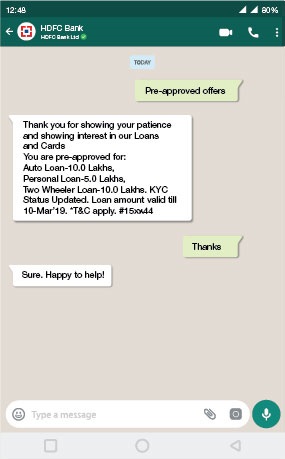
HDFC Bank implemented a customer support system on WhatsApp to enhance customer experience.
By allowing customers to connect with the bank easily, resolve queries promptly, and receive immediate assistance, HDFC Bank aimed to streamline the customer service process and provide personalized support round the clock.
They used a WhatsApp chatbot to assist customers with their queries, provide balance updates, and help with transactions.
Results and impact:
- Reduced query resolution time by 50%: By enabling customers to communicate directly via WhatsApp, HDFC Bank significantly decreased the time taken to resolve their queries. This efficient and quick response mechanism led to a higher level of customer satisfaction, as customers appreciated the immediate assistance provided.
- Increased customer satisfaction rates by 25%: The convenience of accessing customer support through a familiar messaging platform like WhatsApp resulted in a notable improvement in customer satisfaction levels.
Customers valued the ease of communication and responsiveness of the support team, leading to higher satisfaction rates.
- Improved customer retention by 15%: Offering seamless customer support on WhatsApp not only resolved queries effectively but also fostered stronger customer relationships.
The accessibility and efficiency of the support system contributed to an increased level of customer loyalty, ultimately enhancing customer retention rates for HDFC Bank.
BBC News Using WhatsApp for Informational Campaigns
BBC News harnessed the power of WhatsApp to deliver real-time breaking news alerts, top headlines, and in-depth stories directly to subscribers' mobile devices.
By offering this convenient service, BBC News aimed to keep users informed and engaged with current events on a platform they frequently use.
Campaign Strategy:
- Sent breaking news alerts to subscribers
- Provided customizable news preferences
- Delivered in-depth stories and top headlines
- Allowed users to interact and share news content
Results and Impact:
- Expanded Audience Reach: BBC News reached a wider audience by delivering news directly to users' phones, increasing visibility and engagement.
- Enhanced Brand Credibility: By providing timely and relevant news updates, BBC News established itself as a trustworthy source of information.
- Improved User Interaction: Users could personalize their news feed, interact with the content, and share stories with their contacts, fostering a sense of community.
Starbucks Engaging Customers with WhatsApp
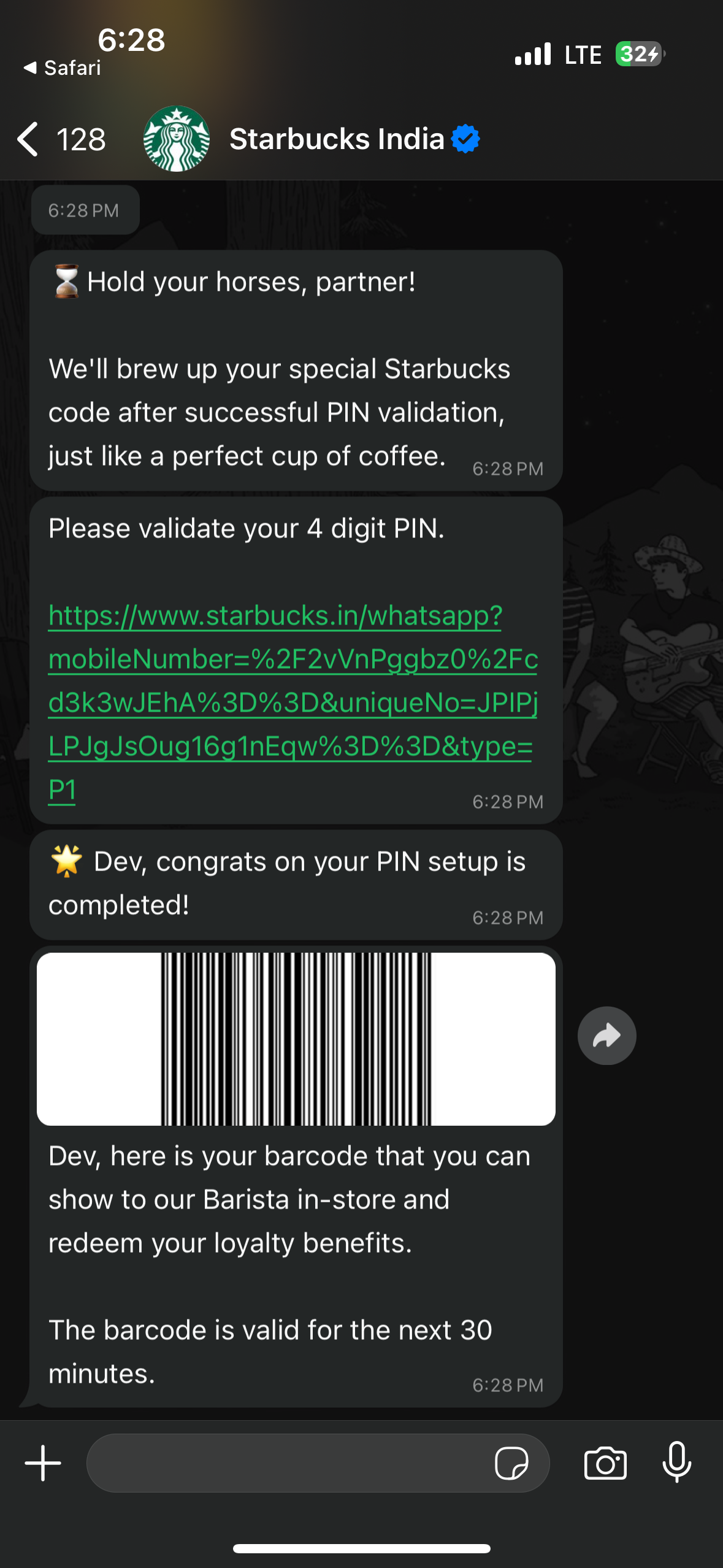
Starbucks effectively utilized WhatsApp to engage with customers through exclusive offers and feedback gathering.
Their campaign strategy involved sharing personalized offers, providing a platform for customers to interact, and collecting valuable feedback to enhance the overall customer experience.
Starbucks leveraged WhatsApp to create a direct line of communication with their customers, offering them exclusive discounts and promotions.
By sending customized offers based on customer preferences, Starbucks made their customers feel valued and special, fostering a sense of loyalty and connection.
Impact on Customer Loyalty and Sales:
- Increased Customer Loyalty by 40%: Starbucks significantly enhanced customer loyalty by offering personalized experiences and engaging customers directly.
Customers felt appreciated and valued, leading to stronger connections with the brand.
- Boosted Sales by 15%: The exclusive offers and promotions shared through WhatsApp drove an increase in sales for Starbucks.
By enticing customers with tailored deals and discounts, Starbucks was able to drive conversions and increase revenue.
- Enhanced Brand Perception Among Customers: Through their WhatsApp campaign, Starbucks not only increased customer loyalty and sales but also improved their brand perception among customers.
By providing a personalized and interactive experience, Starbucks positioned themselves as a customer-centric brand that values its customers' input and preferences.
Zara Conducting Feedback and Survey Campaigns
Zara, the renowned fashion brand, adopted WhatsApp as a platform to gather valuable feedback from customers and conduct surveys to enhance their product offerings and overall customer satisfaction levels.
By leveraging the interactive features of WhatsApp, Zara was able to establish a direct and instant communication channel with its customers.
Let's delve into how Zara utilized WhatsApp for feedback collection and surveys, leading to significant improvements in product customization and customer satisfaction.
Zara initiated feedback collection campaigns through WhatsApp by sending personalized messages to customers post-purchase, asking them to share their thoughts on the products bought.
Through simple, conversational chatbot prompts, customers were encouraged to provide feedback on various aspects like product quality, fit, design, and overall shopping experience. This real-time interaction allowed Zara to gather immediate insights and preferences directly from the customers.
Impact of Feedback and Survey Campaigns:
- Enhanced Product Customization by 20%: By analyzing the feedback and survey responses received through WhatsApp, Zara was able to tailor their product offerings according to customer preferences.
This led to a 20% improvement in product customization, ensuring that Zara's collections resonated well with their target audience.
- Increased Customer Satisfaction by 30%: Through actively listening to customer feedback and implementing changes based on their suggestions, Zara saw a substantial increase of 30% in overall customer satisfaction levels.
Customers felt valued and heard, resulting in a more positive brand perception and an enhanced shopping experience.
- Improved Brand Loyalty Among Customers: The personalized approach taken by Zara in engaging customers through WhatsApp for feedback and surveys strengthened the bond between the brand and its customers.
As a result, Zara witnessed a notable improvement in brand loyalty, with customers showing higher levels of repeat purchases and brand advocacy.
Adidas Using WhatsApp for Product Launches

Adidas, the renowned sports brand, strategically employed WhatsApp to generate excitement and buzz around their new product launches.
By leveraging the platform's instant messaging capabilities, Adidas engaged with customers in real-time, offering exclusive previews and interactive campaigns to build anticipation and drive pre-orders.
How Adidas Used WhatsApp for Product Launches
- Creating Buzz: Adidas generated hype around new product launches by creating dedicated WhatsApp groups or broadcasts to provide sneak peeks, behind-the-scenes content, and exclusive updates to a select group of subscribers.
This personalized approach made customers feel part of an exclusive community and increased their interest in the upcoming products.
- Increasing Pre-Orders: Through targeted messaging and interactive campaigns on WhatsApp, Adidas encouraged customers to pre-order the new products before the official launch. Adidas successfully boosted pre-order numbers and secured sales in advance by offering early access or special discounts to WhatsApp subscribers.
- Strengthening Customer Engagement: Adidas fostered meaningful interactions with customers through WhatsApp, allowing them to ask questions, provide feedback, and engage with the brand on a more personal level.
By responding promptly to queries and showcasing a genuine interest in customer opinions, Adidas built strong relationships with their audience, leading to increased brand loyalty and customer satisfaction.
Impact of Adidas' WhatsApp Campaigns for Product Launches
- Generated a 50% increase in pre-orders: By leveraging WhatsApp to create a sense of exclusivity and urgency, Adidas saw a significant spike in pre-orders for their new products, showcasing the effectiveness of the platform in driving sales before the official launch.
- Boosted brand visibility by 40%: Through strategic messaging and targeted content dissemination on WhatsApp, Adidas increased their brand exposure and visibility among existing and potential customers, further solidifying their position as a leading sports brand in the market.
- Strengthened customer engagement and brand loyalty: By actively engaging with customers on WhatsApp, addressing their queries, and involving them in the product launch process, Adidas deepened their connection with consumers, fostering loyalty and advocacy for the brand.
Predictions for the Future
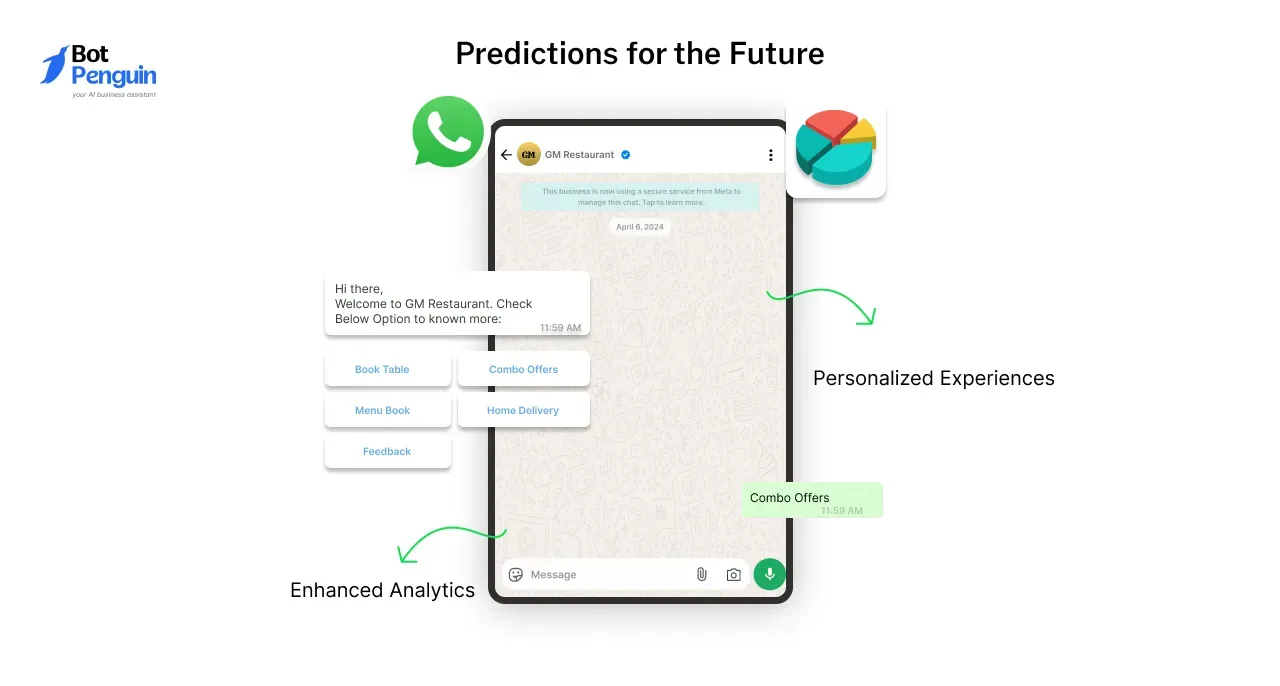
The future of WhatsApp advertising campaign looks bright. As technology evolves, so will the ways businesses use WhatsApp. Here are some predictions for what's coming next:
- Personalized Experiences: With AI, businesses will offer more tailored experiences. Expect more targeted messages and offers that match user preferences.
- Integration with Other Platforms: WhatsApp will likely integrate more with other social media and e-commerce platforms, creating seamless user experiences.
- Enhanced Analytics: Better tools for tracking and analyzing campaign performance will emerge. Businesses will gain deeper insights into customer behavior and campaign effectiveness.
- Stat: Thanks to AI and chatbots, 80% of customer interactions are expected to be managed without human intervention by 2026.
Conclusion
We've taken quite the journey through the world of WhatsApp advertising campaigns, haven't we?
From clever WhatsApp advertising campaigns that make you chuckle to WhatsApp chatbots that feel like talking to your BFF, it's clear that this messaging app isn't just for sharing memes anymore.
Whether you're a small business owner or a marketing guru at a big corp, WhatsApp marketing campaigns offer a golden ticket to your customers' hearts (and phones). The best part? You don't need a degree in rocket science to launch a WhatsApp ad campaign.
With a sprinkle of creativity and a dash of strategy, you can cook up a campaign that'll have your customers double-tapping faster than you can say "chatbot for WhatsApp."
So, what's next in the WhatsApp campaign universe? Who knows! Maybe we'll see AR filters in WhatsApp ads or chatbots that can read your mind (okay, maybe not that last one). But one thing's for sure – WhatsApp campaigns are here to stay, and they're only getting cooler.
Ready to give it a shot?
Remember, the key to a killer WhatsApp marketing campaign is to keep it fun, keep it relevant
Frequently Asked Questions (FAQs)
What is a WhatsApp campaign?
A WhatsApp campaign is a marketing strategy where businesses use WhatsApp to send messages, promotions, and updates to customers.
WhatsApp marketing campaign an effective way to engage with users directly on a widely-used messaging platform.
How can businesses use WhatsApp for marketing?
Businesses can use WhatsApp for marketing by sending personalized messages, promotional offers, updates, and customer support.
They can leverage features like WhatsApp chatbot and multimedia messages to enhance customer engagement and communication.
What are some real-world examples of successful WhatsApp campaigns?
Netflix uses WhatsApp for promotions, sending sneak peeks and reminders about new releases.
HDFC Bank provides customer support via WhatsApp, handling queries and transactions through a WhatsApp chatbot, improving customer satisfaction and engagement.
What tools are needed to run a WhatsApp campaign?
To run a WhatsApp campaign, businesses need a WhatsApp Business account, a contact list, and tools like the WhatsApp Business API and third-party automation and analytics tools for effective campaign management.
How do WhatsApp chatbots enhance marketing campaigns?
WhatsApp chatbots automate customer interactions, providing instant responses and handling routine queries.
This enhances marketing campaigns by improving customer service, increasing engagement, and allowing businesses to focus on more complex tasks.
What are the benefits of using WhatsApp for marketing?
Benefits include direct communication with customers, high engagement rates, personalized messaging, and the ability to provide instant support.
WhatsApp's widespread use ensures a broad reach for marketing campaigns.




